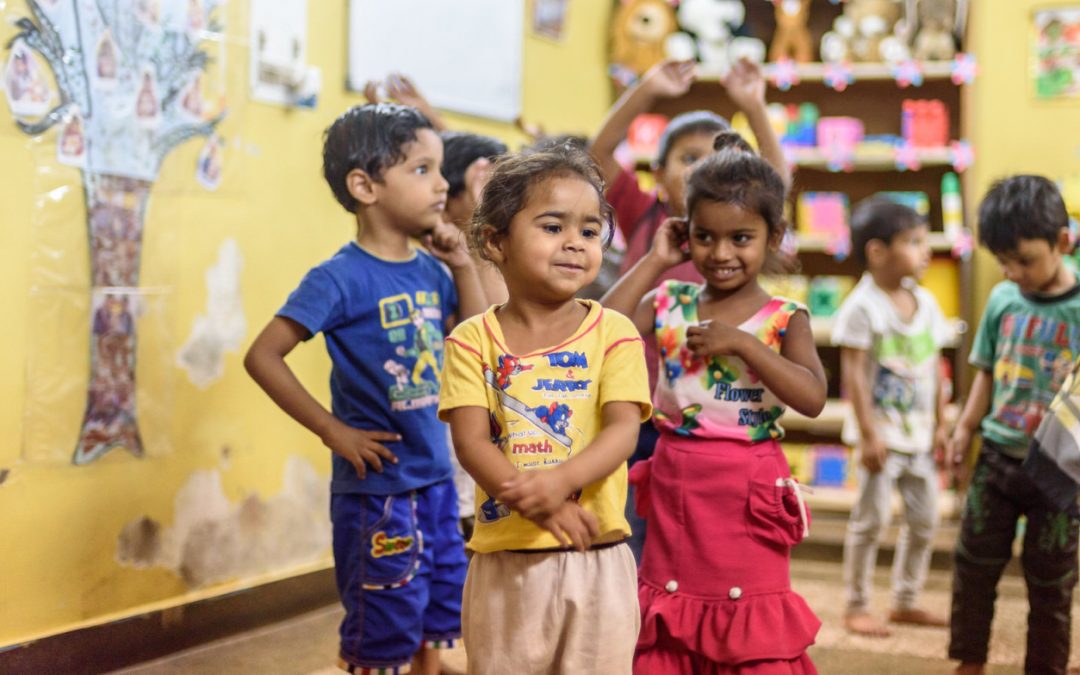
by anouradha bakshi | Sep 19, 2017 | Uncategorized
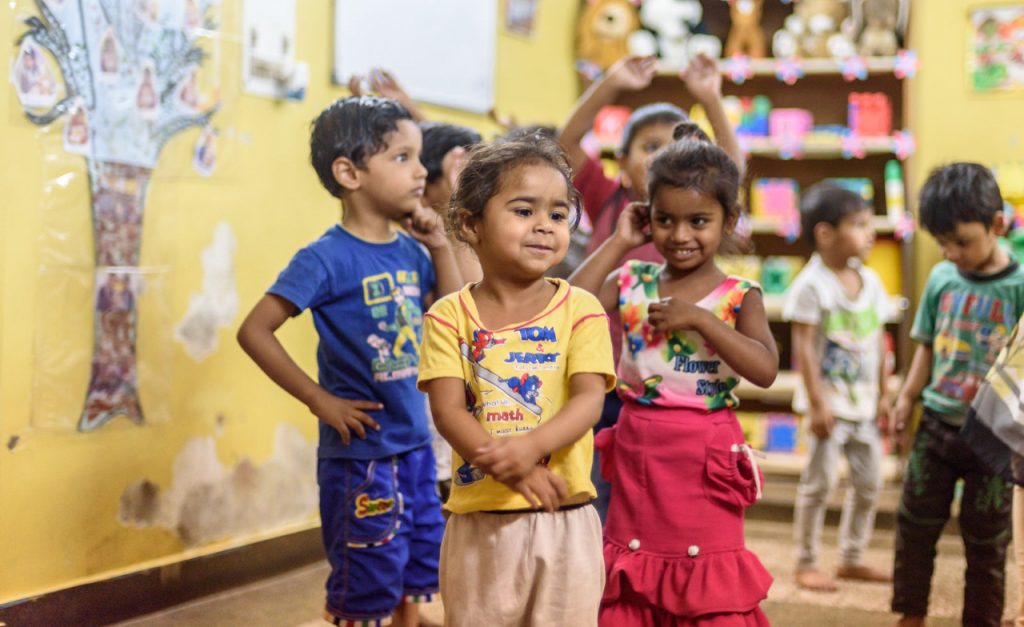
I send my child to school because I believe my child will be safe.
This is undoubtedly what most parents feel when the wave goodbye to their child at the gate of the school or the school bus stand. But all changed on the fateful day when a little seven year old was brutally killed within the walls of his school. The case remains unsolved and gets murkier by the day as a cover up game is on!
The terrible crime sends chills down one’s spine. Imagine a little boy who saunters happily to school in the morning, needs to visit the loo and is brutally killed, his throat slashed. His fault? Trust. Trust that in his school he is safe. A culprit had been ‘identified’. Is he the real culprit. The sexual assault angle has been negated by the autopsy. A fact finding committee has come out with glaring lapses in security measures. The Government has stepped in and may take over the school for a period of time. The case has been taken over by the country’s leading Intelligence organisation. But all this can never bring back the little victim to life.
Today as we sit and wonder why this happened and where did we go wrong, many things come to mind. As we look back on the recent history of education in free India, what stares us in the face is its commercialisation. Education is now a business. and in business it is not the child that is the centre of attention, but the money that can be made. The equation is skewed and unless its is redressed, the likelihood of another child being hurt is very real.
The question is: how does one balance the two, or rather can one balance the two.
I have always held that education should be equitable and free for every child born in this land. Thus education should be imparted in state run neighbourhood schools where children of all walks of life should share school benches. Isn’t education meant to be an even playing field.
Sadly this is not what seems to be the chosen option. Education is a business and no matter how many checks and balances one comes up with, one has to remember that market forces dictate businesses.
Memory is short. Soon this terrible crime will be forgotten. Things will go back to what they were.
Will it take another child’s life to bring us to our senses. Let us not forget that one child dying in one child too many.
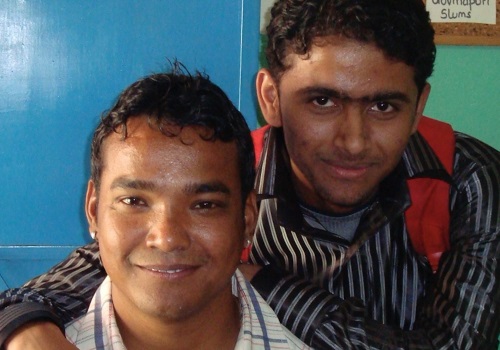
by anouradha bakshi | Jun 21, 2017 | Uncategorized
Project WHY opened its first spoken English class for secondary students in 2001 in Giri Nagar. It was the same time that Naresh had just completed his Bachelor’s degree in Arts and was looking for a job. He was a whizz mathematician and loved to teach, and to fulfill this passion he was giving tuitions to the neighborhood children, often for free. But in a poor home, one cannot afford to dream, for dreams do not put food on the table. Naresh tried his hand at various jobs, even as a vendor in a shoe shop, which just lasted two-days. His heart was not in it.
One day, in November 2001, a Class 10 student, Aadarsh, came to class with large welts on his arms. He had been brutally beaten in the government school he attended. Corporal punishment still prevails in many Indian schools despite a law against it. Project WHY resource persons visited the government school. The experience was Dickensian. The headmaster kept whirling the stick in his hand to make his point. The boy and other Project WHY students were humiliated. The boys were called guttersnipes and the Principal contemptuously informed us that these boys would never pass their Class 10 Board Examinations (a state level examination).
Project WHY took up the challenge of providing these boys with support to clear their Class 10 examination. With no funds, no space and no teacher to take this forward, Project WHY was in need of a miracle to get the bunch of lads ready for an exam in two short months.
A miracle came in the form of Naresh, who happened to be the elder brother of a teacher, Rani. He had just finished his degree and was looking for a job in the Giri Nagar area, where Project WHY had started. The only space available was the dusty pavement in front of our center and the only time available to tutor the students was between 7.30am to 9.30 am in the morning before they went to school. Every morning ten students assembled in front of the center, some mats were laid out and Naresh and his boys sat in a circle to study. The cold was kept at bay by cups of tea graciously offered by Naresh’s family.
That year, the challenge was won. The boys cleared their Class 10 examinations and this marked the beginning of Project WHY’s secondary outreach programme. Since then, Naresh has single-handedly ensured the success of hundreds of boys and girls who have successfully cleared their Board exams. The boy with the welts is now father of a little boy and all set to immigrate to Australia after having completed his higher education.
To Naresh, teaching a student is a mission he cannot fail. When exams approach, he schedules extra classes and teaches at the crack of dawn or late into the night. This is quite a feat for someone who likes a morning lie-in and a late session with his pals! On exam days, he is as nervous as his students, if not more, and waits for their return so he can find out how it all went. Come results day, his nails are bitten to the base as he scours the Internet, his students in tow.
Recently, when he went visited the Project Why Okhla Center and found out that the senior secondary students were in need of some extra tutoring, he rescheduled his timetable and took them under his wings. He never seeks extra compensation. Naresh often tells his students that he wishes there had been a Project WHY when he was growing up.
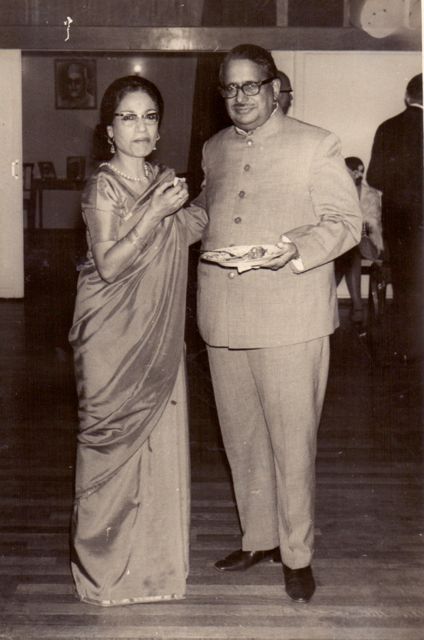
by anouradha bakshi | May 23, 2017 | Anou's Blog, Uncategorized

Live so that when your child thinks of fairness, caring, integrity she thinks of you. These words sum Ram and Kamala’s life. Today a more than a quater of a century after I lost them, and in the seventh decade of my life, I know I could not have been who I am if not for them.
They would have celebrated their 68th wedding anniversary today. I know they are popping the champagne bottle in heaven and I raise my glass to their happiness.
You may wonder why a blog about anniversaries and personal memories on what should be a post on Project Why. The answer is simple. Project Why is the logical outcome of an only child eagerly following her parents’ example day after day and not their advice. Advice is tinted by social mores, and politically correct guidance, example is from the heart. Advise would have been a lucrative career, a heavy bank balance, luxury holidays and three starred dinners. They gave me all that while I was still a child. I had my fill and sought more, but did not know what ‘more’ was as that never came as ‘advise”!
That came after they left and I sat looking desperately for the legacy they had left behind. It was not in the boxes and trunks and memorabilia that was strewn around me. I was terribly lost. All I had to hold on to were my father’s last words: don’t lose faith in India! It was November 1992.
It would take six long years of loneliness and pain to finally discover what the legacy was. Six long years of remembering their lives, the bittersweet memories, the stories often unfinished and bereft of any moral precept. And slowly it all came to me, in no order at all but somehow fitting the puzzle that would become Project Why. From Kamala’s side it was education, women’s right, patriotism, gender equality, standing for what is right, self-respect, courage and unconditional love. From Ram’s it was humanity, compassion, tolerance, social equality, generosity, giving unabashedly, giving when you did not have and of course culture, savoir-faire, integrity, probity and simple living.
It was left to me to honour this legacy.
And to honour them I set up Project Why with the hope that all the lessons learnt at their knee would be reflected in what I have been striving to do for the past 18 years!
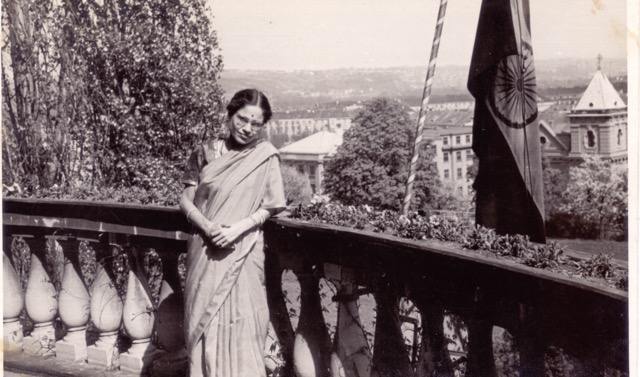
by anouradha bakshi | May 16, 2017 | Anou's Blog, Uncategorized
The Trust does not bear her name. Once again it was the flamboyant husband who won the match! But the real inspiration and the quiet and gentle motivating force as always in my life was Kamala Goburdhun née Sinha. Her lessons were not exuberant like those of her better half. They were subdued and tender, cameos of her life she shared with her only child. In the week mother’s are celebrated the world over, I would like to share some of these stories as each is echoed in Project Why.
Kamala the child was determined to go to school and her doting father did not stop her from getting enrolled in the first school for girls that opened its doors in the sleepy town of Meerut where the family lived. The school was established in 1929. She was already 12 years old but that did not detract her. There was no looking back. For education she would break all the rules. And she had two formidable women in her corner: her paternal grandmother and her mother! The three would devise ways to win over the Gandhian father. Kamala went on several hunger strikes to be able to continue her studies beyond class VI, go to Banaras Hindu University for her BA, do her MA and LLB. Her final degree would be a PHD at Charles University Prague, after the loss of her first born. Kamala was your never give up woman.
But there is more in the life of this small town freedom fighter’s daughter who went on to become an Ambassador’s wife. When she reached the age when girls would be married, she made a pact with her father, a pact both would honour. She was adamant about not having a child in a land that was not free and hence would not marry before India’s becoming independent, and should she still be of age, would marry whoever her father chose.
But that was not all. Her concern for fellow women was so deep, that she agreed to work for the British in order to reach out to war windows in the villages of Western UP to ensure that that their pension was not usurped by some male member of the family. She drove a truck to reach the far fledged villages. She lived alone in Mandi House Delhi and commuted every week to her home in Meerut in her little Baby Austin. In the villages she reached out to women in more ways than one. A real trouper!
India became Independent. Her father found a man, a man that would take her away on a real magical mystery tour. But the transition from freedom fighter’s daughter to diplomat’s wife was not easy. The first challenge came soon after marriage. A dinner at home where one of the invitees was the British Ambassador. Kamala was appalled at the thought of having to receive him in her home. How could she get past the memories of a little child applying balm to the lacerated backs of her father and his companions when they came back from yet another non-violent protest. This was her task as in those days there was purdah, and women did not mingle with men.
It took her husband oodles of patience and love to explain to her that India was free, and it was the Indian flag that flew on the house she lived in. She was to the manor born and understood what was expected of her. Again she never looked back and was the perfect diplomat’s wife.
So when I look at Project Why, at the years gone by, at the work we have achieved, I realise that though the Trust bears my father’s name, it is her lessons that are imbued in every breath I take, in every step I walk. My unequivocal and obsessive love for India and my pain at seeing how things are going, my determination to educate as many as I can, my desire to make women stand on their own feet. Everything is what she taught me.
So today I understand that if not for you, Kamala, there would be no Project Why!
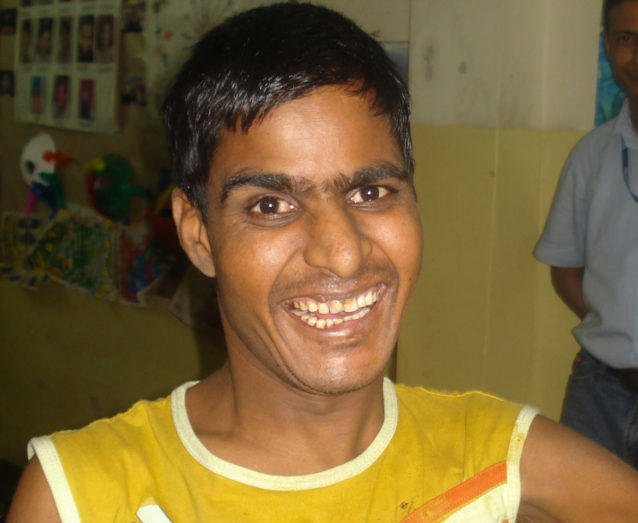
by anouradha bakshi | May 9, 2017 | Anou's Blog, Uncategorized
(Posting a series of success stories from the compilation The Project Why Stories 2000-2016)
Project WHY’s journey starts with the story of Manu, a boy with special needs who the founder of Project WHY, Anouradha Bakshi, came across one fateful summer day in 2000. Manu was clad in rags, disheveled and filthy, limping and begging on the streets, crying out for help at being bullied and abused.
Manu wasn’t born a beggar. He came from a family that lived within its humble means – his siblings went to school, his father had a Government job and his mother loved him. An alcoholic father and his special needs were his only challenges. But after his mother’s death, and his sisters moving away after marriage, he was pushed to the streets, and often spent his days without anything to eat. His brother’s wife use to send him begging for a few coins. People fed him and treated him like a street animal, his father’s friends abused him, and kids pelted him with stones.
When Anouradha Bakshi answered his call for help that day in May 2000, in the streets of Giri Nagar, a journey began for both of them that would last ten years. The initial efforts were in finding an institution to take care of him, but with no success in that endeavor, a rented place in Manu’s locality was arranged – a larger plan slowly enfolded called Project WHY. Manu was the reason that really made Anouradha take the road less travelled.
Anouradha made herself a promise she would only reveal much later: Manu would have a home, a bed to sleep in, friends to share a meal with and even a TV.
Project WHY grew as a space to support underprivileged school children. Every day, the organization gained trust and working became better every year, especially for Manu. He was bathed, fed and had his own bed in the verandah of what was then our Project WHY office. And in 2002 when we launched our class for special kids, he was Roll number 1!
Some would perhaps think that was game over…Manu was given a TV and a place to stay. But not for the vision Manu provided or set for Project WHY. The challenges that had been addressed gave Project WHY the audacity to start dreaming big, …very BIG!!! Dreams of a long-term, sustainable future for children like Manu – The dream of Planet WHY. The first plan in this was to give Manu and his friends a place in which they could grow old and die in dignity. The idea of a green building, with terracotta bricks and old style flooring and many widows to let light and breeze in. It would be Manu’s home and workplace as he would be able enough to learn gardening or a skill. Land was bought, architectural plans made and Project WHY started looking for funds.
On January 7, 2011, Manu tiptoed out of Project Why’s and Anouradha’s life after having had a cup of tea and his favorite biscuits. It is only after his death that the true meaning of Manu’s life emerged. As Anouradha puts it, the biggest lesson Manu taught the family of Project WHY is to “never judge a child by their appearances and also believe that each and every child is special”. No life, however miserable, wretched or seemingly hopeless, is meaningless. Every life has a purpose.
Manu’s legacy is huge. If not for him, there would not have been a Project WHY. If not for him, so many lives would never have been transformed, be it the now thousands of children who have had access to education, the scores of kids with repaired hearts, the many hopeless souls who now have dignified employment, the bunch of disabled kids who now spend their day happy and so on. Manu was born to conjure miracles.
In true homage to Manu, Project Why lives on.
![A sticth in time #GivingTuesday#India]()
by anouradha bakshi | May 2, 2017 | Anou's Blog, Uncategorized
(Posting a series of success stories from the compilation The Project Why Stories 2000-2016)

Born to a poor family in Bihar, Gyanti Devi never had the opportunity to learn as a child. Soon after her marriage, her husband, who is severely handicapped, required treatment. This meant moving her life and her two children to Delhi in 2006, where they lived on rent in the village of Madanpur Khader. The area houses mostly migrant families and has a high dropout rate from government schools as well as issues of safety and nutrition.
Gyanti Devi’s case was brought to our attention by a friend of the Project, Sunita, at the beginning of 2014. With her husband unable to work due to his handicaps, Gyanti Devi needed income for her family but, with no skill whatsoever, was unable to find a job.
At Project WHY, we felt that our sewing or beautician classes could give Gyanti Devi the opportunity to start a career. However, we soon realised that, being entirely illiterate, she would need more than just vocational skills. Dharmender, the manager of our Khader centre, proposed that she spend the mornings learning to stitch with the vocational group, but also attend literacy lessons with the children for 40 minutes in the afternoon. She agreed to this and became one of our most motivated and diligent students, slowly building up her literacy skills with the children whilst also finding solace in her knitting.
Now, Gyanti Devi is a proud graduate of the Project WHY system and able to read, write and sew with ease. She has started a small business within her village stitching other people’s clothes, with which she is able to provide income to her family. She is also able to read the local newspaper and understand what is going on in the world. She points to an increased sense of freedom and opportunity with the skills that she now has. Previously afraid to take the bus alone, she notes that “I can now make my house budget and also can read the bus signboard.”
Armed with a new sense of financial responsibility, Gyanti Devi has spent the last three years building a new house for the family. She would get up early in the morning and take the interstate bus from Delhi to Palwal (Haryana) by herself, returning late at night. There, she would bargain and purchase the construction materials required. She kept detailed records of all labour payments in a notebook and is proud of her achievements. “I have successfully built my home for my family. So, I can say today that what every man can do, I can also do”.
Project WHY believes that every person should be able to change his or her life, and it provided the support for Gyanti Devi to do this and achieve her dream. She has created a better future for her children and she hopes that the skills she has learnt will allow her family to prosper for generations.







